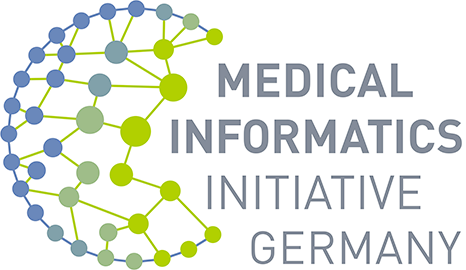Berlin, 22/12/2020. “This year has seen the Medical Informatics Initiative (MII) make further important advances in digitally integrating data from routine patient healthcare and research across multiple sites,” reported Sebastian C. Semler, TMF (Technology, Methods and Infrastructure for Networked Medical Research) and head of the MII coordination office, during the online conference of the MII national steering committee (NSC) in early December 2020. “This included, above all, securing the approval of the Germany-wide patient consent template document from data protection authorities, and the introduction of SNOMED CT terminology in Germany,” added Semler. The MII’s Germany-wide data infrastructure will allow better research into diseases and more targeted treatment. The Ministry of Education and Research (BMBF) has provided initial funding of around 160 million euros through 2022.
In December 2020, the national steering committee expressed its satisfaction with the MII’s achievements over the year. 29 university hospital sites in Germany have already established data integration centres (DICs) in order to bring together distributed data from healthcare and research and to make them available for all sites for clinical and healthcare research. The MII’s data infrastructure currently supports a variety of COVID-19 research projects, consolidated under the aegis of the German University Hospitals’ Network (Netzwerk Universitätsmedizin, NUM). Moreover, the MII provides a pool of data for comprehensive medical research.
The legal basis for the use of data within the scope of the MII is broad consent. This was accepted by all German data protection authorities at state and federal level in April 2020. As a result, patients across Germany can now, for the first time, consent to the use of their pseudonymised clinical data on the basis of a standardised text in line with the EU General Data Protection Regulation. Medical researchers can use these data for a variety of analysis purposes, not limited to a single disease. This is a milestone for the initiative and for the German medical research landscape. A number of university hospitals have been using the declaration of consent since August.
In October 2020, the MII’s national steering committee approved a standard contractual document for the cross-site use of patient data and biosamples within the scope of the MII – a document that had previously been developed and agreed with the legal departments of the university hospitals. As a result, the MII has taken a further important step forward in its efforts to establish an agreed legal framework for the cross-site use of data for research.
With an eye to patient participation, the MII held a series of dialogue events and successfully continued discussions with patient organisations. These events provided patient representatives with visibility into the use of data and research projects within the framework of the MII. Their feedback will be incorporated into the future development of communications and transparency activities aimed at patients, and improvements to the consent process at university hospitals.
SNOMED CT, the international terminology standard, was made available in Germany for the first time in mid-March 2020 via the MII. The license fees are borne by the BMBF. As MII members, almost all German university hospitals and other MII partners (universities, research institutions and industrial companies) have therefore received SNOMED CT licenses. During this pilot phase, TMF is the national release centre for the licenses; Germany is set to become a national member of SNOMED International, at which point this role will pass to the Federal Institute for Drugs and Medical Devices (BfArM).
To demonstrate the capabilities of the MII infrastructure, all consortia took part in two projects this year. The aim of the POLAR_MI (POLypharmacy, Drug interActions, Risks) project is to improve the care of patients who take more than one medication at the same time, and to increase the safety of treatment with medication. The focus of the CORD_MI project is on rare diseases. The goal is to digitally connect all information captured across Germany on rare diseases via diagnostics, treatment and research in order to enhance the care of the impacted patients and to support corresponding research. Preparations are currently being made for a further MII project related to biobanks.
Medical Informatics Initiative supports COVID-19 research
In summer 2020, the MII published an online overview of active research projects, and COVID-19 research registers and data studies at its sites. The website is designed to give researchers and other interested parties better visibility into current projects and their contacts. This promotes inter-personal networking and harmonisation of activities. The enhanced MII core data set provides the basis for the standardised GECCO (German Corona Consensus) data set for COVID-19 research.
Currently, the MII is working on the implementation of the COVID-19 research platform, known as CODEX, for the University Hospitals’ Network (NUM).

